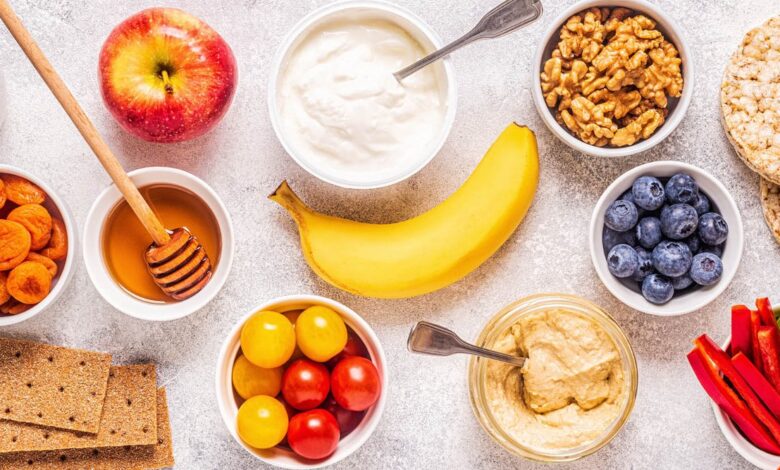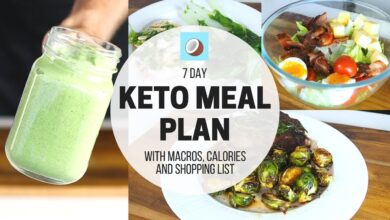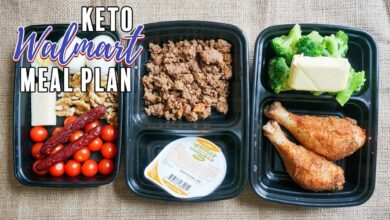
What Is the Best Diet During Pregnancy? A Keto Expert’s Guide to Safe and Healthy Eating.
Discover the best diet during pregnancy with expert keto insights. Learn safe keto meal plans, nutrition tips, and how to support a healthy pregnancy while following a keto lifestyle.
Introduction
Pregnancy is an exciting, transformative journey — one that requires special attention to nutrition. What you eat during these crucial months directly impacts your baby’s growth and your own well-being. But with so many conflicting diet advice and fads, the question arises: What is the best diet during pregnancy?
Among popular eating plans, the keto diet — a low-carb, high-fat regimen — has gained significant attention. Is keto safe during pregnancy? Can it provide the essential nutrients both mother and baby need? As a keto diet professional with decades of experience, I’m here to guide you through everything you need to know about the best diet for pregnancy and keto.
In this comprehensive guide, you’ll discover science-backed insights, safe keto meal plans, nutrition tips, and answers to your most pressing keto and pregnancy questions.
Understanding Nutrition Needs During Pregnancy
During pregnancy, your body has unique nutritional demands. These aren’t just about eating more — it’s about eating right. The growing baby needs a constant supply of essential vitamins, minerals, and macronutrients for proper development. Your body also requires additional calories and nutrients to support increased blood volume, tissue growth, and milk production preparation.
Key nutritional requirements include:
- Calories: Approximately 300 extra calories per day in the second and third trimesters.
- Protein: Essential for fetal tissue development and maternal tissue repair.
- Folate: Crucial for preventing neural tube defects.
- Iron: Supports increased blood volume and prevents anemia.
- Calcium: Important for developing baby’s bones and teeth.
- Healthy Fats: Critical for brain development, especially omega-3 fatty acids.
Despite these needs, many pregnant women struggle with cravings, nausea, or misinformation leading to poor diet choices. This is why understanding a balanced approach — like the pregnancy nutrition keto approach — can make a huge difference.
Common pregnancy diet myths include:
- “Pregnant women must eat for two” (quality, not quantity, matters).
- “All fats are bad during pregnancy” (healthy fats are vital).
- “Carbs should be avoided completely” (balance is key).
Is the Keto Diet Safe During Pregnancy?
The keto diet revolves around consuming low carbohydrates, moderate protein, and high healthy fats to push the body into ketosis — a fat-burning metabolic state. While keto has been praised for weight loss, blood sugar management, and mental clarity, questions arise about its safety for pregnant women.
Is keto safe during pregnancy? The short answer: It depends.
Current scientific evidence is limited and somewhat mixed. Some animal studies suggest strict carb restriction may affect fetal growth, while others show benefits like improved insulin sensitivity. Human studies are sparse, but many healthcare providers recommend caution.
Potential risks:
- Nutrient deficiencies if the diet is not well planned.
- Ketone levels that may or may not affect the developing fetus.
- Increased risk of keto flu symptoms like fatigue or dehydration.
Potential benefits:
- Better blood sugar control, which is especially important for women with or at risk of gestational diabetes.
- Reduced excessive weight gain.
- Lowered inflammation.
Because of these factors, it’s vital to follow a keto pregnancy diet plan only under medical supervision and focus on nutrient-dense foods rather than strict carb deprivation.
Benefits of a Keto Diet During Pregnancy
If followed carefully and thoughtfully, the keto diet can offer benefits during pregnancy, particularly for women who struggle with blood sugar control or excessive weight gain.
Managing Gestational Diabetes Risk
Gestational diabetes affects many pregnant women, leading to high blood sugar that can harm both mother and baby. The keto diet’s low-carb nature helps stabilize blood glucose levels, potentially reducing this risk.
Supporting Healthy Weight Gain
Pregnancy is not about losing weight but gaining healthfully. Keto encourages a gradual, steady weight gain through fat burning and hunger regulation, avoiding spikes caused by sugary carbs.
Stable Blood Sugar Levels
Unlike high-carb diets that can cause blood sugar rollercoasters, keto maintains more even glucose levels, preventing fatigue, cravings, and mood swings.
Reduced Inflammation
Chronic inflammation can contribute to pregnancy complications. Healthy fats from keto — especially omega-3s — have anti-inflammatory properties that may benefit mother and baby.
How to Follow a Safe Keto Diet During Pregnancy
If you’re considering keto during pregnancy, safety is paramount. Here’s how to follow a safe keto pregnancy meal plan:
Guidelines for Pregnant Women on Keto
- Don’t aim for extreme ketosis: Moderate carb intake (around 30-50 grams per day) to avoid overly high ketone levels.
- Prioritize nutrient-dense foods: Leafy greens, nuts, seeds, avocados, fatty fish, and quality meats.
- Hydrate well: Pregnant women need extra fluids; keto can be dehydrating if not balanced.
- Listen to your body: Adjust carb intake if you experience dizziness, fatigue, or other symptoms.
Recommended Carb Intake Levels
Rather than zero carbs, aim for complex, fiber-rich carbs such as:
- Leafy greens (spinach, kale)
- Cruciferous vegetables (broccoli, cauliflower)
- Berries in moderation
Nutrient-Dense Keto Foods Safe for Pregnancy: Building the Best Diet for Mother and Baby
Choosing the right foods is vital to crafting the best diet during pregnancy, especially when following the keto lifestyle. Nutrient-dense keto foods safe for pregnancy provide essential vitamins, minerals, healthy fats, and protein needed to support both maternal health and fetal development while maintaining the low-carb, high-fat principles of keto.
When focusing on the best diet for pregnancy, it’s important to prioritize foods rich in micronutrients like folate, iron, calcium, and omega-3 fatty acids — nutrients critical for preventing birth defects, supporting bone health, and promoting brain development. The keto diet naturally emphasizes fats and proteins, but without careful food selection, some of these key nutrients can be overlooked.
Leafy Greens and Non-Starchy Vegetables
Leafy greens such as spinach, kale, and Swiss chard are some of the most important components of the best diet on keto during pregnancy. These vegetables are low in carbs but packed with folate, iron, calcium, and fiber, all of which support healthy fetal growth and digestion. Incorporating cruciferous vegetables like broccoli, cauliflower, and Brussels sprouts adds antioxidants and vitamin C, which aid iron absorption and immune function.
High-Quality Protein Sources
Adequate protein is essential in the best diet for pregnancy to build and repair tissues for both mother and baby. Keto-friendly proteins that are safe and nutrient-dense include grass-fed beef, free-range poultry, and wild-caught fish. These sources provide essential amino acids, iron, and B vitamins. Opting for fatty fish like salmon or sardines enriches your diet with omega-3 fatty acids, vital for the baby’s brain and eye development.
Healthy Fats
Since the keto diet is high in fat, choosing the right fats is a cornerstone of the best diet during pregnancy. Focus on healthy fats from sources like avocados, olive oil, coconut oil, and nuts. These fats provide energy, support hormone production, and help absorb fat-soluble vitamins such as A, D, E, and K. Additionally, omega-3-rich fats from fish or supplements play a unique role in fetal neurological development.
Dairy and Alternatives
Full-fat dairy products like cheese, yogurt, and heavy cream are excellent for the best diet in pregnancy when tolerated. They supply calcium, vitamin D, and protein. For those who are lactose intolerant or prefer non-dairy options, fortified almond or coconut milk can be keto-friendly alternatives, helping meet daily calcium needs.
Berries in Moderation
Though keto limits carbs, small portions of low-sugar fruits such as berries (strawberries, blueberries, raspberries) can be part of the best diet during pregnancy. Berries provide antioxidants, vitamin C, and fiber without significantly raising blood sugar level.
Putting It All Together
Crafting the best diet during pregnancy on keto is about balance — combining low-carb, nutrient-dense foods that safely nourish you and your growing baby. By focusing on whole, minimally processed foods rich in vitamins, minerals, healthy fats, and quality protein, you support optimal health and development while maintaining ketosis safely.
Remember, your healthcare provider or a registered dietitian specializing in keto and pregnancy can help tailor the best diet to your individual needs and ensure you’re meeting all nutritional requirements.
Foods to Avoid: Essential for Maintaining the Best Diet During Pregnancy on Keto
Choosing the best diet during pregnancy means not only knowing what to eat but also understanding which foods to avoid to protect both your health and your baby’s development. When following a keto diet during pregnancy, certain foods can pose risks due to their potential impact on fetal growth, nutrient absorption, or pregnancy complications. Avoiding these foods is a vital part of maintaining the best diet and ensuring a safe and healthy pregnancy.
1. Processed and Trans Fats
Processed foods often contain unhealthy trans fats, which are linked to inflammation, heart disease, and poor pregnancy outcomes. Even though keto encourages fat intake, the emphasis should be on healthy fats like avocados, nuts, seeds, and olive oil. Avoid fried snacks, packaged baked goods, and margarine to maintain the best diet principles and reduce unnecessary risks.
2. High-Mercury Fish
Certain fish accumulate mercury, which can be harmful to a developing baby’s nervous system. Pregnant women on keto aiming for the best diet should avoid high-mercury fish such as shark, swordfish, king mackerel, and tilefish. Instead, opt for low-mercury, omega-3-rich fish like salmon, sardines, and trout to safely meet fat requirements.
3. Unpasteurized Dairy and Soft Cheeses
While dairy can be part of a keto pregnancy diet, unpasteurized milk, cheeses, and yogurts may harbor harmful bacteria like Listeria, which can cause miscarriage or severe illness. To follow the best diet standards, always choose pasteurized dairy products and avoid soft cheeses like Brie, Camembert, and blue cheese during pregnancy.
4. Excessive Caffeine
Moderate caffeine intake is generally considered safe during pregnancy, but high consumption may increase risks of low birth weight or miscarriage. When maintaining the best diet on keto, limit caffeine sources such as coffee, tea, and energy drinks to less than 200 mg per day (about one 12-ounce cup of coffee).
5. Artificial Sweeteners and Processed Sugar Substitutes
Though keto avoids sugar, some artificial sweeteners may carry risks during pregnancy. Some studies suggest that excessive intake of certain sugar substitutes could affect fetal development or metabolism. To uphold the best diet during pregnancy, avoid or limit sweeteners like saccharin, and opt for safer natural options like stevia or monk fruit in moderation.
6. Raw or Undercooked Meat, Eggs, and Seafood
Pregnancy demands extra caution to avoid foodborne illnesses like toxoplasmosis or salmonella. Consuming raw or undercooked meats, eggs, or seafood can jeopardize the best diet by introducing harmful pathogens. Always cook these foods thoroughly to protect yourself and your baby.
7. Highly Processed Keto Snacks
While the keto market offers many “keto-friendly” packaged snacks, some contain preservatives, artificial ingredients, and unhealthy oils. These products may undermine the quality of the best diet during pregnancy. Focus instead on whole, natural foods and homemade snacks to maintain optimal nutrition.
8. Excessive Salt Intake
Though keto diets typically require increased sodium for electrolyte balance, too much salt can raise blood pressure — a risk factor for pregnancy complications like preeclampsia. The best diet during pregnancy balances electrolyte needs carefully, avoiding excess salt from processed or fast foods.
By consciously avoiding these foods, you’re actively supporting the best diet for a healthy pregnancy while embracing the keto lifestyle. Prioritizing whole, nutrient-rich, and safe foods minimizes risks and maximizes the health benefits for you and your developing baby.
Always consult your healthcare provider for personalized advice on foods to avoid based on your unique health profile and pregnancy progress. This personalized approach is key to maintaining the best diet and ensuring a positive pregnancy experience.
Sample Keto Pregnancy Meal Plan
Here’s a sample pregnancy keto diet plan to guide your daily eating:
Breakfast
- Avocado and smoked salmon on a bed of spinach
- Bulletproof coffee with MCT oil (optional)
Mid-Morning Snack
- Handful of almonds and a few raspberries
Lunch
- Grilled chicken salad with mixed greens, olive oil dressing, and avocado slices
Afternoon Snack
- Cheese slices with celery sticks
Dinner
- Baked salmon with steamed broccoli and cauliflower rice
Dessert
- Keto-friendly chia seed pudding with coconut milk
This balanced plan ensures healthy fats, moderate protein, and low carbs while packing vitamins and minerals.
Keto Supplements and Vitamins for Pregnancy
To support your keto pregnancy diet, certain supplements are recommended:
- Prenatal Vitamins: Ensure folate, iron, calcium, and vitamin D intake.
- Omega-3 Fatty Acids: Critical for brain and eye development; consider a high-quality fish oil supplement.
- Magnesium: Helps with muscle cramps and relaxation.
- Electrolytes: Sodium and potassium to prevent keto flu symptoms.
Always consult your healthcare provider before adding supplements.
Common Challenges and How to Overcome Them
Managing Keto Flu Symptoms Safely
Pregnancy can make keto flu symptoms like headaches or fatigue more intense. Combat this by:
- Drinking plenty of water
- Ensuring adequate salt intake
- Resting when needed
Dealing with Cravings and Nausea on Keto
Pregnancy cravings can challenge keto adherence. Try keto-friendly alternatives for comfort foods and eat small, frequent meals.
When to Adjust Your Diet
If you experience dizziness, weakness, or other adverse effects, increase your carb intake and consult your doctor.
When to Avoid Keto During Pregnancy
Keto is not suitable for everyone. Avoid it if you:
- Have a history of eating disorders
- Have type 1 diabetes or other metabolic disorders without supervision
- Experience pregnancy complications or multiple pregnancies
- Are unable to access regular medical support
Always prioritize personalized medical advice.
Read Also Healthy Pregnancy Diet: 10 Low-Glycemic Superfoods That Stop Excessive Weight Gain
Conclusion
So, what is the best diet during pregnancy? While the keto diet offers promising benefits, safety and balance are key. A well-planned, nutrient-rich keto diet can support stable blood sugar, healthy weight gain, and inflammation reduction — all essential for mother and baby.
Remember, every pregnancy is unique. Always consult your healthcare provider before starting or continuing keto during pregnancy. With careful planning and medical guidance, keto can be part of a healthy pregnancy journey.
FAQs
Can I do keto while pregnant?
Yes, but only under medical supervision, focusing on nutrient-dense foods and moderate carb intake.
What are the best keto snacks during pregnancy?
Nuts, cheese, avocado slices, boiled eggs, and keto-friendly smoothies.
How many carbs should I eat on keto during pregnancy?
Around 30-50 grams of complex carbs per day, adjusted based on symptoms and doctor advice.
Is keto good for gestational diabetes?
It can help stabilize blood sugar, but consult your healthcare provider before trying keto.
What supplements do I need on a keto pregnancy diet?
Prenatal vitamins, omega-3 fatty acids, magnesium, and electrolytes are commonly recommended.






3 Comments